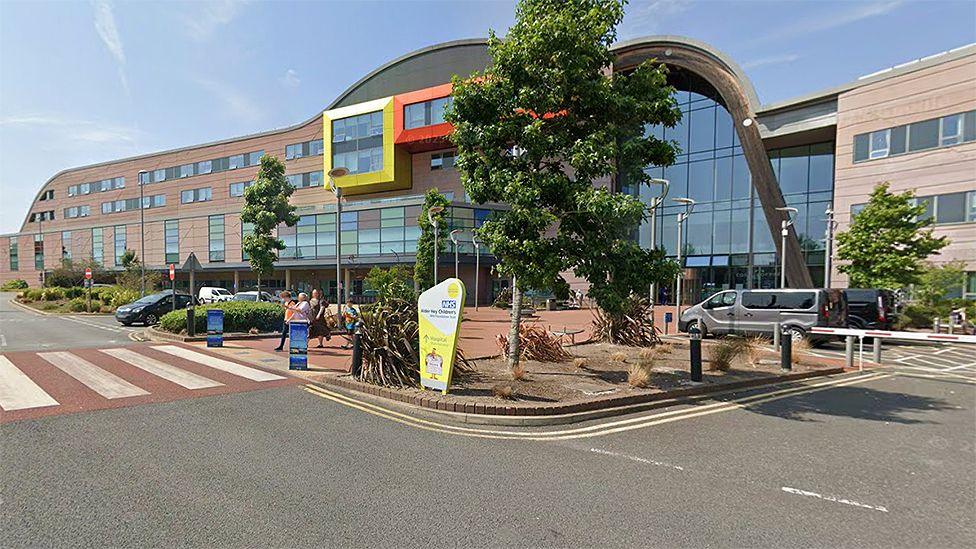Alder Hey gets child-friendly MRI scanner with TV
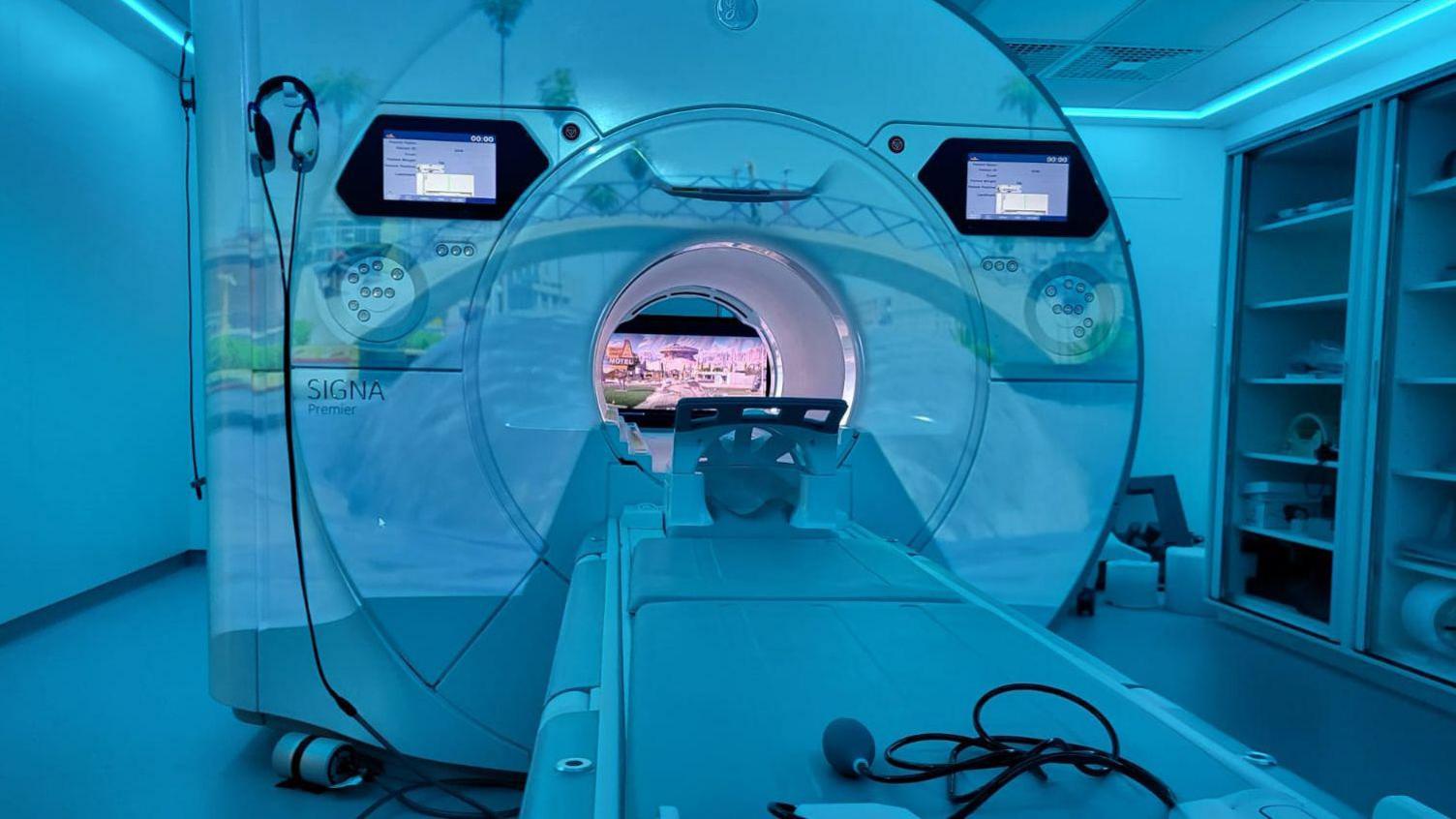
The new scanner has begun operating at Alder Hey Children's Hospital
- Published
A state-of-the-art MRI scanner built to have child-friendly features including a TV so young patients can watch their favourite shows during a scan has entered use at Alder Hey Children's hospital.
The £3.1m 3-Tesla Magnetic Resonance Imaging scanner is among the first in Europe, and researchers have hailed the technology as "game-changing".
It is used as part of the diagnosis and treatment of patients with conditions such as epilepsy and is the preferred method for follow-up assessments for children with cancer as they do not use radiation.
Alder Hey research manager Jason Taylor said it was "fantastic" to have the new scanner at the hospital.
He said the new scanner meant more "game-changing research" could be done with partners in hospitals, universities and industry.
Lead radiographer Neil Fanning said the new scanner was "much more patient-friendly", with lighter and more comfortable equipment.
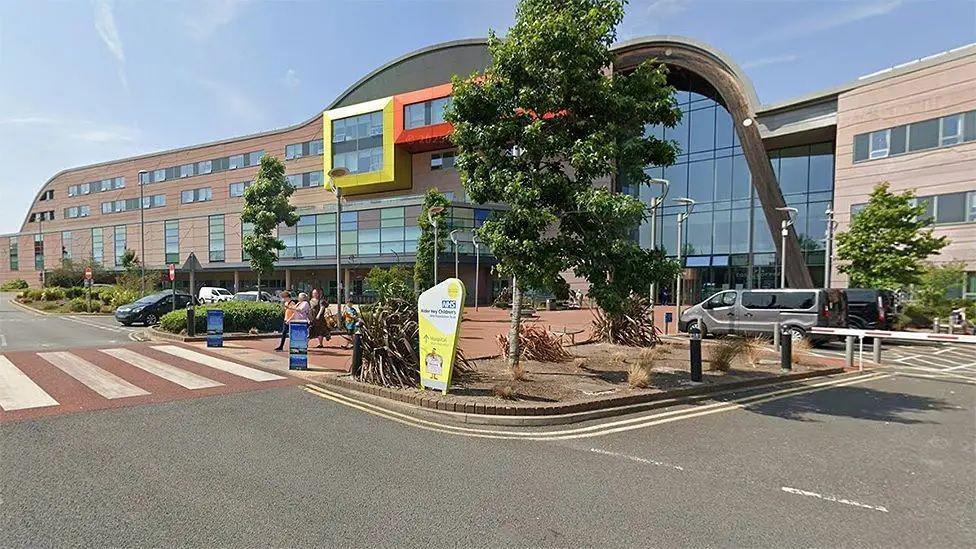
The new scanner is said to use cutting-edge software
Alder Hey's consultant radiologist Professor Shivaram Avula said the scanner "provides the imaging speed, resolution and flexibility needed to lead the way in studying childhood and adult conditions".
The scanner was funded by the National Institute for Health and Care Research (NIHR) and is being used in a new child-friendly MRI suite.
Among its features are lighting, sounds and video projections and the TV screen.
An Alder Hey spokesperson said one of the first studies using the scanner would involve scanning newborns during natural sleep to explore how early life and environment affect brain development.
What is MRI?
Magnetic Resonance Imaging (MRI) is a safe and non-invasive way to see inside the body, including the brain, muscles, joints and organs, an Alder Hey spokesperson said.
Unlike traditional scanners, the new 3-Tesla model is able to capture much higher quality images in less time, using cutting-edge hardware and software.
MRI scanners help identify early signs of disease, enabling medics and researchers to understand how differences such as genetics and the environment can influence health, which is vital for developing tailored treatments.
Get in touch
Tell us which stories we should cover on Merseyside
Listen to the best of BBC Radio Merseyside on Sounds and follow BBC Merseyside on Facebook, external, X, external, and Instagram, external. You can also send story ideas via Whatsapp to 0808 100 2230.
Related topics
More like this story
- Published7 July
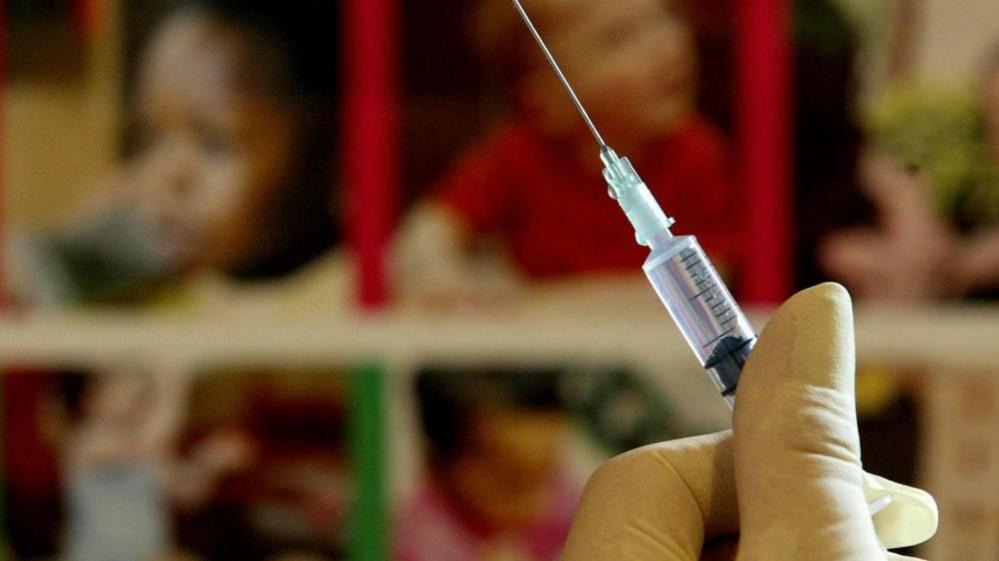
- Published2 July
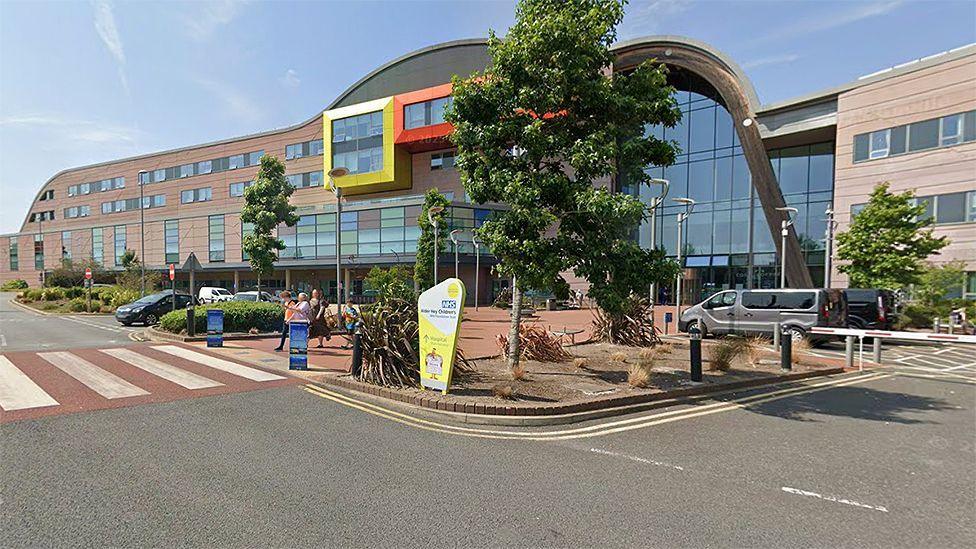
- Published11 June
